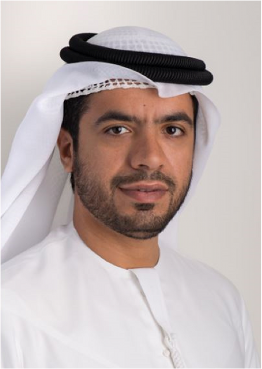New research project at MIPLM: Quality in IP management to improve innovation success for United Arab Emirates
Since their inception in 1971, the United Arab Emirates have established a consistent image as an icon for innovation and creativity, enhancing their social and economic status, and transforming into a primary destination for talents and businesses in record time.
The UAE’s vision is to be among the most innovative nations in the world. The UAE leadership believe that innovation is the future of human investment and emphasize its importance across all sectors through the UAE Vision 2021 and Vision 2071: “Innovation, research, science and technology will form the pillars of a knowledge-based, highly productive and competitive economy, driven by entrepreneurs in a business-friendly environment where public and private sectors form effective partnerships.” The UAE government has put in place new excellence system criteria in order to measure and ensure compliance with the vision among all government entities and industrial players (60%), innovators (20%), and enablers (20%).
Technologies of the Fourth Industrial Revolution will have a very strong economic impact. A number of countries around the world are investing large amounts of money in innovation activities such as research and development (R&D), having in place clear metrics for the future economic impact. While these countries have an economic strategy as well as an innovation policy in place, they often find it challenging to measure whether their innovation activities are in compliance with their economic strategy. This applies in particular to the core business sectors government entities focus on in order to ensure achievement of the government vision.
The purpose of this research project is to investigate and describe how to measure the compliance of innovation processes and the intellectual property management (IPM) process with the criteria of the EFQM excellence model and UAE excellence system or other criteria. The project further aims to identify the best way of measuring the degree to which these criteria have been implemented based on the nature of the work, tasks, and services provided by an entity, as well as the contribution of the entity to achieving the National Agenda objectives and indicators.
This project seeks to investigate ways of measuring the innovation process by means of the EFQM excellence model or other standards, and how to strengthen and increase the complexity of the model in order to remain competitive in this environment, and to ensure continuous innovation and improvement, especially with regard to IP. In addition, the project seeks to analyze the relationship between IPM and EFQM enabler criteria (e.g. leadership, strategy, people, partnership, resources and processes, products, and services), and result criteria (e.g. people-related results, customer-related results, society-related results, and business-related results).
The United Arab Emirates (UAE) are used as a country and Abu Dhabi as a city to measure the compliance of innovation with the UAE’s strategy. This research study receives official support from the UAE government.

This research project is conducted by MIPLM graduate Faisal Abdulla AlHmoudi and supervised by Prof. Dr. Alexander Wurzer and Prof. Dr. Céline Meyrueis, both CEIPI. Faisal Abdulla AlHmoudi holds the position of Director of Takamul at the Department of Economy Development (DED). In this role, he is in charge of the design and execution of innovation support initiatives run by the DED, including the Takamul Program.
Faisal joined the DED in 2016. Prior to this, he was Senior Manager on the Abu Dhabi Technology Development Committee, where he spent 6 years supporting and developing innovation initiatives for Abu Dhabi across multiple sectors including oil & gas, energy, basic materials, and aerospace. His areas of expertise include innovation, corporate strategy, and business development. Faisal Abdulla AlHmoudi also holds a BSc in Civil & Environmental Engineering (UAE University, Al Ain, UAE, 2001-2006) and a Master of Science in Civil Engineering (UAE University, Al Ain, 2011).
Faisal is the only UAE citizen to hold a Master of IP Law and Management and to specialize in innovation and IP management (including innovation strategy, design policies and processes for capturing new inventions, patent valuation, IP management decision-making, technology innovation, support for the creation of intangible assets, IP processes, IP controlling, and know-how).



